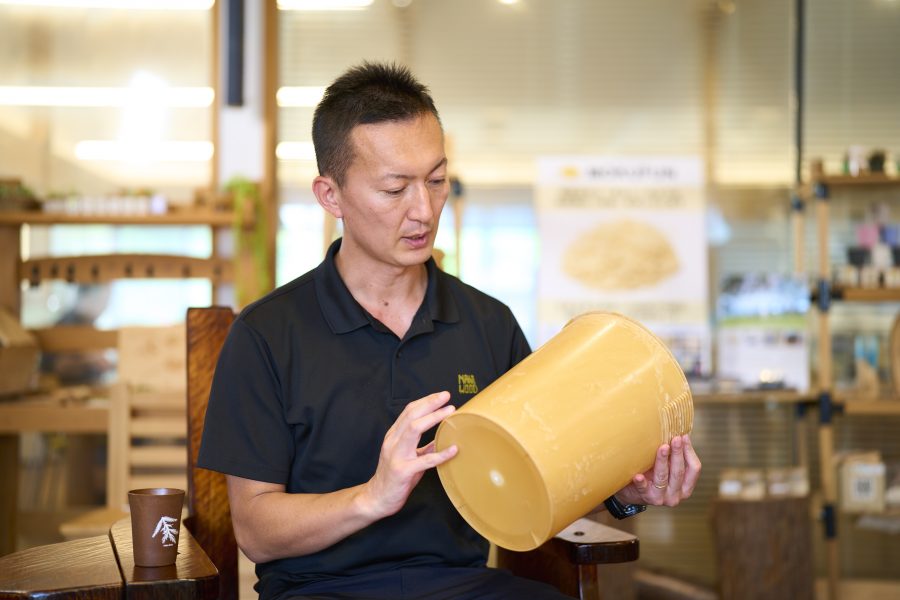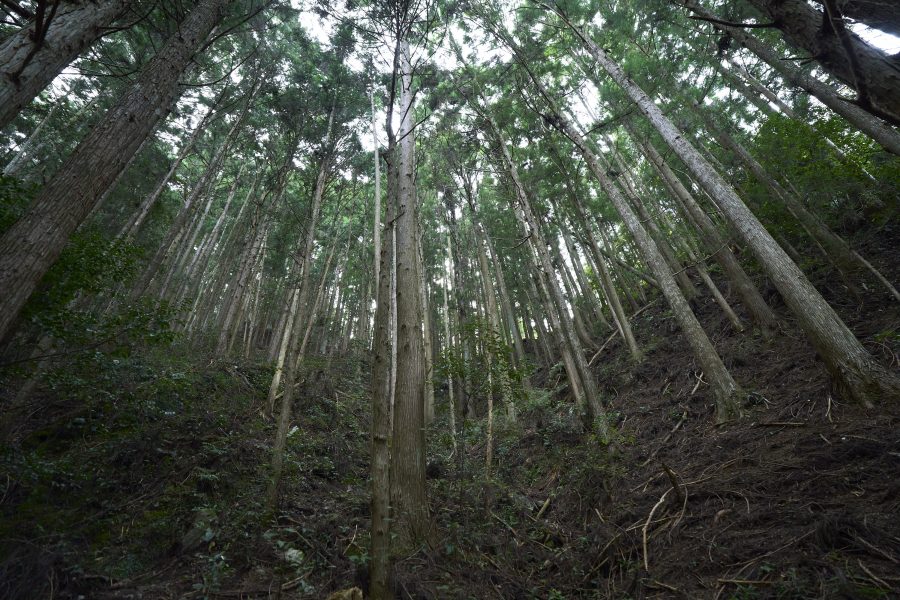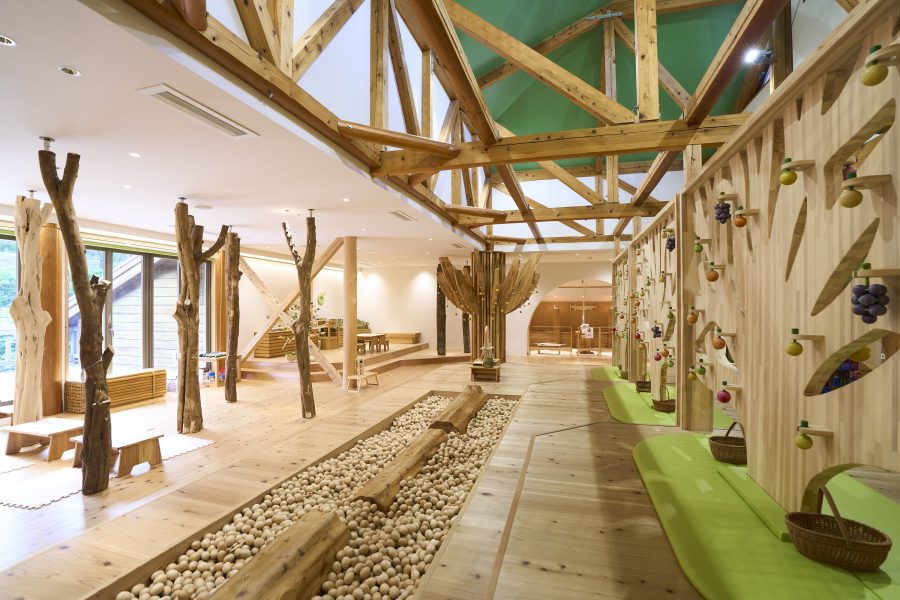
Naka Town promotes itself as a town with a “good countryside.” For the sustainable development of the town’s forestry industry, it is essential to work toward the sixth industrialization, and Shono has found a way to make use of “wood powder.” To begin with, it has excellent functionality. The advantages of natural wood, such as water absorption, deodorization, and insulation, are preserved. By mixing it further or extracting its components, it can be used in a variety of products. It has already been commercialized as tableware and “wood leather.”
The six trash cans to be supplied to the Expo will be made from wood powder produced from bamboo and cedar grown in the prefecture, combined with resin. Unused bamboo and cedar wood, which are the raw materials for wood powder, are often discarded without being put to good use. The idea is that by making trash cans for collecting waste items from unused local wood, it will encourage people to think about how to make effective use of trash and resources. The prototype is 24 cm wide and 28 cm high, and at first glance appears to be made only of resin, but it is actually made by incorporating the best of Tokushima’s wood. Final adjustments are underway to see if the amount of wood powder can be increased even a little. In addition, discussions are in progress to see if design elements like the color scheme and illustrations of cedar trees would make the product more appealing to the public.
Experience-based events are underway to include a tour of a wood powder factory, but the most popular one is likely to be the tour to “experience the entire forest,” where participants can fully enjoy nature. Eight-Japan Engineering Consultants Inc. will play a central role in planning the tour. The tour offers a unique Standup paddleboarding (SUP) experience using paddleboards made of Japanese cedar, where you can paddle forward in the Kawaguchi Dam Regulating Pond, where there are few waves. The cedar boards are handmade locally, and two boards, one 3 m and the other 4 m long, will be available. The beautiful wood grain is soft to the touch, but they are also quite heavy. The 3-m board weighs 40 kg, and the 4-m board weighs 80 kg. However, once the boards are afloat in the water, the buoyancy of the wood means you don’t feel the weight, and you can enjoy a stable ride. “I wanted to convey the connection between the mountains, the river, and the ocean by boards made of wood,” explains Shono. After enjoying SUP, you can relax your tired body at the nearby “Momijigawa-Onsen Inn.”
Children can have plenty of fun at the “Naka Town Toy Museum,” a place promoting wood education that makes extensive use of the town’s trees. The “Kendama Hiroba” and “Sumiyaki-goya” offer toys that can only be experienced here, and can be fully enjoyed by people of all ages. In addition, the tour will be filled with fun activities such as trekking in a mountain forest selected as a nature symbiosis site by the Ministry of the Environment and bamboo shoot picking in the spring, allowing visitors to experience nature in each of the four seasons. Even a major travel agency commented, “We had no idea there was such charm in the area,” and Shono was reminded once again of the charms of the local area that not yet been communicated to the public.
Participation in the Expo 2025 should be a great confidence booster for the town’s residents. Above all, we hope that young people will see the appeal of the forestry industry. As a town that co-exists with trees, they hope to provide an opportunity for the world to look at the valuable resources that have been preserved by the community. The Expo 2025 will be a stage for a major leap forward.


Share this article


